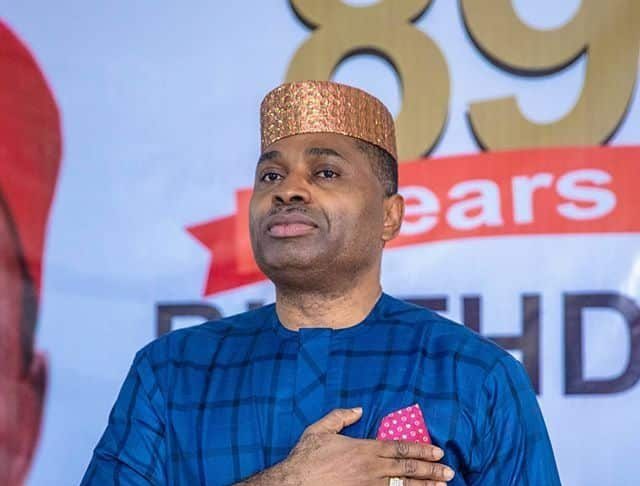Kenneth Okonkwo, a former spokesperson for the Labour Party Presidential Campaign Council, has ignited a debate by asserting that Peter Obi’s recent pledge to serve only one term if elected president in 2027 is not an original idea but rather a political strategy borrowed from former Vice President Atiku Abubakar. Okonkwo contends that Atiku first employed this tactic in previous campaigns to allay concerns about power rotation between the North and South, promising a single term to assure voters that the presidency would return to the other region. This assertion casts Obi’s commitment in a new light, suggesting it’s a calculated move to garner support rather than a purely principled stance on governance.
Obi’s single-term pledge has stirred considerable discussion among political circles, with many questioning its sincerity and underlying motivations. The former Anambra State governor, who contested the 2023 presidential election on the Labour Party platform, recently reiterated his intention to run again in 2027. During a live X (formerly Twitter) Spaces session, he reaffirmed his commitment to a single four-year term if elected, promising swift action to stabilize Nigeria within the first two years of his presidency. He also addressed speculation about a potential joint ticket with Atiku, dismissing the idea while expressing openness to coalition talks centered on critical national issues like security, economic revival, and poverty reduction.
Okonkwo’s claim directly links Obi’s strategy to Atiku’s previous campaigns, suggesting that Obi adopted the single-term pledge to gain traction in the North. He argues that this commitment is less about governance and more about navigating the sensitive political landscape surrounding power rotation between the North and South. According to Okonkwo, Obi recognized that without such a promise, he risked alienating Northern voters concerned about a Southern candidate potentially extending their hold on power. This analysis portrays the pledge as a pragmatic political maneuver designed to reassure voters that Obi would not disrupt the established pattern of power sharing.
This perspective frames Obi’s pledge within a larger discourse on the dynamics of Nigerian politics, where regional balance and power rotation are paramount. Okonkwo argues that for an opposition party to effectively challenge an incumbent, especially in a context as complex as Nigeria’s, such a commitment is crucial. By assuring both Northern and Southern regions that neither will feel marginalized regardless of the candidate’s origin, this strategy aims to build a broader base of support. It highlights the strategic considerations that often underpin political pronouncements, especially in a nation grappling with deep-seated regional sensitivities.
Okonkwo’s statement implies that Obi’s adoption of the single-term strategy was a calculated response to the political realities of Nigeria. By echoing Atiku’s previous pledge, Obi sought to position himself as a candidate who respects the unwritten rules of power rotation, thereby appealing to a wider range of voters, particularly in the North. This tactical move, according to Okonkwo, is essential for any opposition hoping to unseat an incumbent government. It suggests that Obi’s pledge should be interpreted within this strategic framework, recognizing the complex political calculus that often informs campaign promises.
This interpretation of Obi’s pledge raises significant questions about the role of political strategy in shaping policy pronouncements and the extent to which such promises reflect genuine commitment versus calculated maneuvering. It also underscores the enduring significance of regional balance and power rotation in Nigerian politics, factors that continue to shape the strategies and pronouncements of political actors vying for power. Ultimately, the debate surrounding Obi’s single-term pledge reflects the broader challenges of building national unity and consensus in a country characterized by deep-seated regional divisions and competing political interests. Whether this pledge is a genuine commitment or a strategic gambit remains a matter of ongoing debate and scrutiny.














